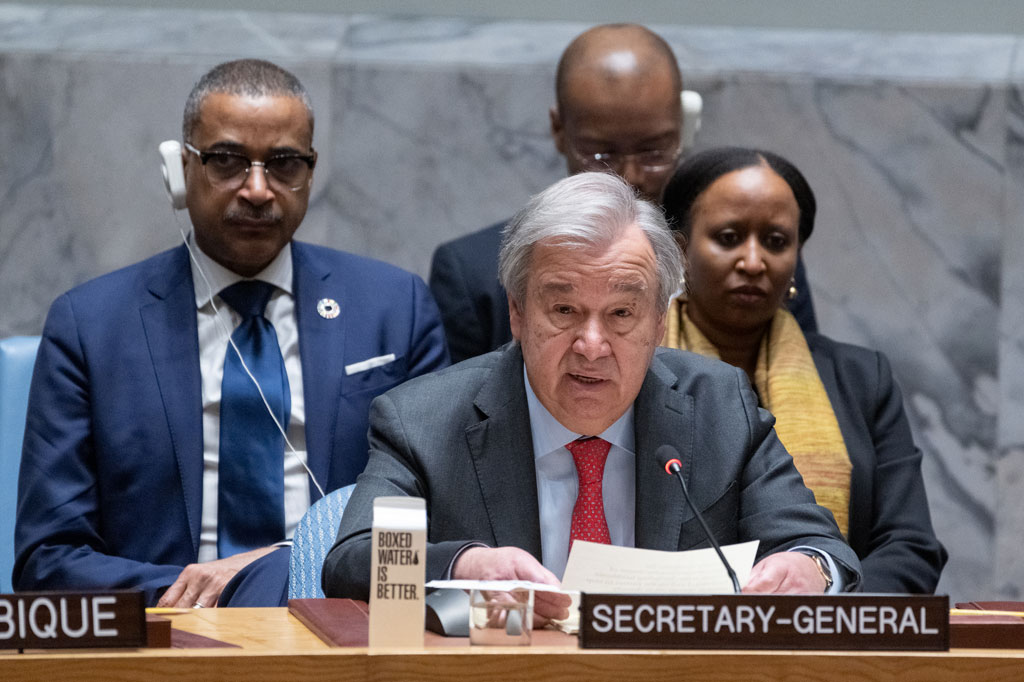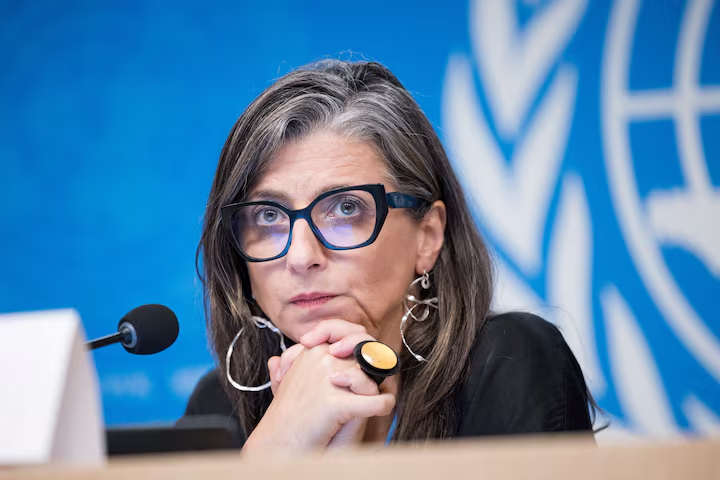
General António Guterres expressed grave concern on Saturday over the dramatic escalation of events in Lebanon’s capital, Beirut, in the past 24 hours.
This follows Israeli airstrikes in southern suburbs of the city that targeted the leader of the Hezbollah armed group, Hassan Nasrallah, who was killed, according to media reports.
The development comes amid escalating violence between Israeli forces and Hezbollah along the UN-patrolled line of separation in southern Lebanon known as the Blue Line, against the backdrop of the nearly year-long war in Gaza.
The Secretary-General’s Spokesperson, Stéphane Dujarric, issued a statement stressing that “this cycle of cycle of violence must stop now, and all sides must step back from the brink.”
“The people of Lebanon, the people of Israel, as well as the wider region, cannot afford an all-out war,” he said.
Mr. Guterres urged the parties to recommit to the full implementation of UN Security Council resolution 1701 (2006) and immediately return to a cessation of hostilities.
Resolution 1701 was adopted in August 2006 and aimed to end the war that erupted in Lebanon that year between Israel and Hezbollah. It called for an end to hostilities, the withdrawal of Israeli forces, and the establishment of a demilitarized zone.
The Secretary-General also reiterated his longstanding appeal for an immediate ceasefire in Gaza and the release of all hostages held in the enclave.
Families on the move
The attacks in Beirut have sparked a new wave of mass displacements.
In response, UN children’s agency, UNICEF, has expanded shelter operations to support families forced to move.
Emergency supplies are being distributed to more than 5,000 people, UNICEF said in a post on the social media platform X, formerly Twitter.
Meanwhile, the number of people heading to Lebanon’s border with Syria is “growing rapidly”, according to the UN refugee agency, UNHCR.
The new arrivals, who include women, children and elderly persons, “are exhausted after hours of travel without food and water”, UNHCR said in a tweet.
Airstrikes displace thousands
Israeli airstrikes in Lebanon have forced thousands to flee their homes, including Palestine refugees living in the country.
Cross-border incidents have displaced 211,319 people since October 2023, according to data from the International Organization for Migration (IOM).
Teams from the UN agency that assists Palestine refugees, UNRWA, are responding, Commissioner-General Philippe Lazzarini said on Saturday in a tweet.
Trauma, uncertainty and fear
UNRWA has opened seven emergency shelters across the country which are currently hosting 1,600 people, including Lebanese citizens and Palestinian and Syrian refugees.
“Many are traumatized due to the ongoing bombardment, uncertainty and fears,” Mr. Lazzarini said. “For some, it is trauma re-lived given repeated cycles of conflict over the decades.”
He warned that a further expansion of the war will only bring more suffering for civilians.
Mr. Lazzarini ended the tweet by stressing that civilians must be protected, while civilian infrastructure must not be targeted.








